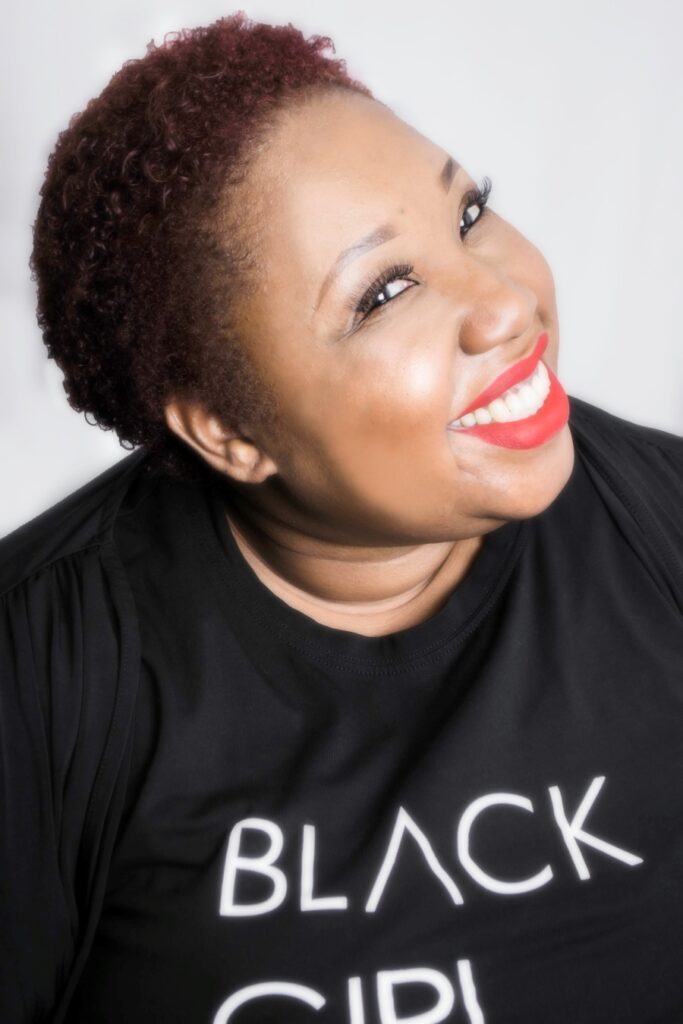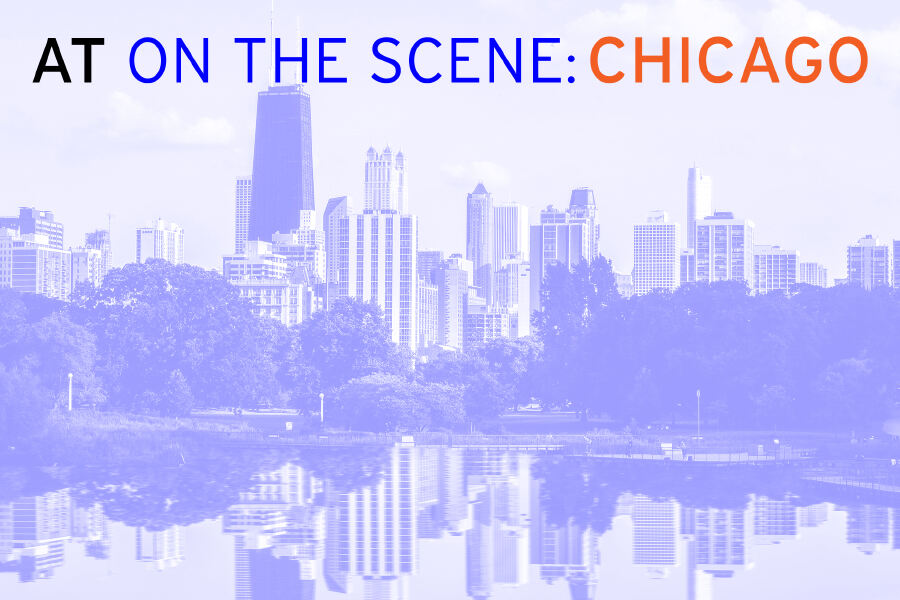Each month, Chicago Editor Jerald Raymond Pierce offers us insight into regional coverage coming out of American Theatre’s Chicago branch and other goings on around the city.
There has been a lot of ink spent recently trying to analyze the problems facing the theatre industry. From op-eds at the Washington Post and Chicago Tribune to our own work here at American Theatre, a lot of folks have taken swings at talking about the current state of the theatre industry and what should come next. The questions I keep coming back to, and the ones I asked folks for our reporting, is: How do we implement sweeping change in the industry? What venue is there for wide-scale agreement to do things differently?
I’ve yet to find a satisfying answer to either question, but I continue to search. In the meantime, I’ve found solace in reporting on companies and artists already doing things differently, hopefully providing examples and guiding lights for those looking for alternatives. That’s one reason why, earlier this month, I turned my attention to Collaboraction here in Chicago. My article was primarily about one of their youth programs, The Light, which pays young artists $18 an hour for their participation in a program that allows them to create art at the intersection of live performance and social change, specifically allowing them to focus on social justice issues that mean something to them as individuals.

With this chance to chat with Collaboraction artistic director Anthony Moseley and producer and managing director Carla Stillwell, we also examined the organization’s shift over the years away from standard seasons and toward mission-driven, community-oriented work that doesn’t revolve around annual season announcements. This past weekend, Gabriela and I had another chance to sit down with Collaboraction’s leadership on their weekly radio show on WCPT, which you can check out on their Facebook and Youtube pages. In the show, Stillwell makes an intriguing point about companies, especially culturally-specific or social justice-oriented organizations, that have pioneered new models for theatre in no small part because they have been historically pushed to the fringe in favor of companies we now regard as predominantly or historically white institutions.
“What that gave us was the opportunity—and one of my good friends says, ‘to fail in obscurity,'” Stillwell said on the radio show, “to do the work and create the models and find the money and teach and grow our own artists.”
I take that as both inspiration and a charge, a reminder and a challenge. It’s easy to feel bombarded by the challenges and issues within the industry, and easy as a journalist to get bogged down reporting on what’s wrong. There’s a balancing act between reporting on the wrong on one side and shining a light on what folks are doing right on the other. There’s only so much capacity at the end of the day. But that’s also why I feel so proud of the work we’ve been doing, especially out of our Chicago branch—work that tries to shine that light in the right direction.

This past month, we had reporter Emily McClanathan report on Albany Park Theater Project’s new immersive production, Port of Entry, produced in partnership with Third Rail Projects. The effort transformed the interior of a 1929 warehouse into a series of realistic apartments in which performers portray immigrants living in one of Chicago’s most diverse communities. Gabriela also reported on Chicago Children’s Theatre’s Red Kite Project, which provides programming for children with autism, developmental disabilities, and other accessibility needs.
We also had a chance to shine our light on a few standout Chicago artists. Gabriela spoke to the dynamic creatives Marvin and Brian Quijada, artists whose history has given them fundamental similarities and unmistakable differences. And, I was able to chat with former Interrobang Theatre Project managing artistic director Georgette Verdin not just about the difficulties that led to the closing of her former artistic home, but the opportunities that have grown from that loss. Verdin offered one thought I keep coming back to as we think and talk through the challenges and changes facing the industry today:
“The universe has a way of putting you where you need to be, doing what you need to be doing.”
I look forward to continuing down this path, speaking with artists and other leaders who not only envision a better future for our field, but who are actively creating it. I still am not sure what venue exists out there that can house the large-scale agreements to change that this industry is craving. I hold onto the hope that the thoughts, ideas, and trials of those who appear in American Theatre’s pages can provoke new thoughts or perhaps even inspire new actions. I look forward to covering those as well.
NOW SEE THIS
Earlier this month, the producers behind The Notebook, the new musical based on the Nicholas Sparks novel and the 2004 movie, announced that the show is headed for Broadway next spring. With a book from Bekah Brunstetter and a score from Ingrid Michaelson, the show made waves in Chicago in 2022 when it premiered at Chicago Shakespeare Theater. For the Sun-Times, Mary Houlihan previewed the musical last fall (and we wrote about one of its featured actors, John Beasley, who sadly passed since the Chicago run). If you’re eager to see what New York can look forward to, check out this clip from the show’s Chicago Shakes run.
AROUND TOWN
Gabriela catches us up on a few items you may have missed!
While this strange summer has brought up tremendous questions around how to support our field, Chicago theatre keeps rolling along.
- As the Reader’s Kerry Reid reports, Jackalope reaffirmed its commitment to both social justice and art-making, seeking another space as it moves temporarily “so the Chicago Park District can use the space as shelter for some of the nearly 12,000 migrants who have been shipped to Chicago from Texas since 2022.” Those interested in providing support to the families can visit this portal.
- If you missed Theatre Y’s The Wiz Walk, a youth ensemble-created mashup of L. Frank Baum’s original and The Wiz, Reid has you covered. She writes that it “invites us to consider why stories endure, what it means to create and sustain a community, and how we find our way back after loss.”
- Catey Sullivan of the Sun-Times and our own Jerald Pierce, writing for the Tribune, sat down with some of the creatives behind the MJ tour, which kicked off in Chicago in early August. Roman Banks, who plays the iconic Michael Jackson, shared with Pierce, “Come ready to enjoy yourself and ready to have fun, to indulge not only in the music and the show itself but also with the community of people around you. That’s when the magic of theatre happens.”
- Commemorating their 25th anniversary, Congo Square “expands their vision” with more community engagement, plans for a new permanent center in Bronzeville, and a renewed urgency to create. Mary Wisniewski for New City Stage reports on artistic director Ericka Ratcliff’s vision in the return to in-person programming. “She says the theatre experience had to become more engaging—almost like a secular church,” Wisniewski writes.
- We see you, Milwaukee! The 2023 MKE Black Theater Festival has concluded its three-week offerings, and Jim Higgins of the Milwaukee Journal Sentinel ran down the festival’s theatre, poetry, workshops, and related community events, including an especially resonant production of Dominique Morrisseau’s Mud Row.
- Meanwhile, Kimzyn Campbell of the Reader was busy attending a six-day intensive with the Chicago International Puppet Theater Festival. In Campbell’s article, we get an intimate inside look at the initiative.
- As the Tribune’s Chris Jones reports, the Goodman will stage the pre-Broadway tryout of Midnight in the Garden of Good and Evil, a musical based on the 1994 nonfiction book by John Berendt, with a book by Taylor Mac and music and lyrics by Jason Robert Brown. The musical replaces the postponed Female Troubles, a new musical comedy from writers behind Veep and Seinfeld, which will now take the Goodman stage in 2025.
- The Reader’s Reid has coverage of this year’s Equity Jeff Award nominations, calling them “a welcome reminder of how much great work has been created on Chicago stages over the last year.”
- I leave you with an incredible event to look forward to. Little Amal is coming to Chicago, and you can support her on the journey across the world at Chicago Shakespeare on Sept. 28. You can check out our previous coverage of Little Amal here.
CHICAGO CHISME
Every month, Jerald and Gabriela check in with Chicago/Midwest theatre artists about what’s getting them out of bed in the morning and keeping them up at night. As we wrap up this summer, we’re excited to celebrate the joy and creativity of two notable artists, both nominated for multiple Jeff Awards. More below from actor Shariba Rivers and costume designer Marquecia Jordan.

What are you reading right now?
Rivers: I am currently reading Bucking the Sarge by Christopher Paul Curtis and Sugar by Jewell Parker Rhodes. Can you tell I work with middle schoolers? These are two of the books being read by my 8th and 6th grade students, and I like to be a part of their conversations when I go to observe.
Jordan: I’m reading an anthology of end-of-the-world stories called Never Fear: The Apocalypse. I’m a huge horror/disaster fiction fan. It’s so good!
What’s something you’ve seen recently that stuck with you or transformed your creative philosophy?
Rivers: I just recently finished The Bear, which has given me some new ways to look at my educational philosophy and how I interact with my teachers. But creatively, Congo Square Theatre’s What to Send Up When It Goes Down still resonates with me in a way not many other plays I’ve seen have. I want to ensure that whatever work I do speaks truth, especially for those voices that have been historically silenced or unheard; promotes dialogue; and creates space for healing and positive action and change the way this play did.
Jordan: I costumed a show this spring at Mercury Theater, Big River, that my friend Christopher Carter directed. If you know the show, it’s not something that you’d expect to be produced in our current social climate. I wasn’t sure how he’d pull off a show that’s so controversial; I even asked him why he wanted to do that show. Now, while it didn’t sell very well, it turned out so beautifully! Audiences loved it. He really transformed the story so that it was touching, emotional, and riveting. The music, actor performances, lighting—every element just came together and it was such a gorgeous show. I was like, “Wow, he really did that.” I was so proud of it. People don’t always see your vision at first, but if you trust yourself and your process, the end result can be really inspiring.
What’s been the highlight of your summer?
Rivers: The highlight of my summer has been finding out that I have two Equity Jeff nominations! Both of the roles I was nominated for were incredibly special to me, and it is nice to have the plays (The October Storm and Trouble in Mind), the roles, and my work recognized in this way. The Chicago acting community is a force to be reckoned with, full of talent and activism and a style that is unmatched. I am incredibly honored to be counted amongst them.
Jordan: I would say being nominated for two Jeff awards for my work at the Mercury Theater, for sure! I’ve costumed three shows there since I began designing in 2021, and I’ve been nominated for best costume design for all three. Just one was awesome, but two this year—I’m just deeply honored and appreciate the recognition.


